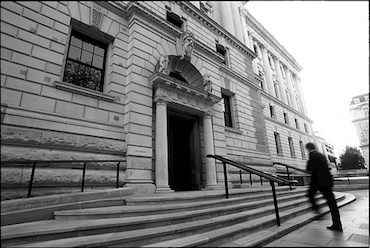
Disappointment over Govt pushing ahead with MPAA cut

The government has introduce a second finance bill today which will reinstate many of the changes dropped before the general election including the controversial cut to the Money Purchase Annual Allowance.
Key changes include cutting the Money Purchase Annual Allowance allowance from £10,000 to £4,000 (back-dated to April), reducing the dividend allowance from £5,000 to £2,000 from April 2018 and introducing a £500 tax free allowance for financial advice on pensions to be drawn from people’ pension funds. There will also be measures in the 674-page bill to crack down on tax avoidance with the plugging of a number of loopholes and also changes to the rules on non-domiciled individuals.
The Treasury and HMRC say that the second Finance Bill of 2017, published today (8 September), will make the tax system “fairer” by cracking down on avoidance and evasion, and will bring in “vital tax revenue” needed for public services.
Tax abuse counter-measures include:
• new penalties for those who enable the use of tax avoidance schemes that are later defeated by HMRC
• an update on the rules around company interest expenses to ensure big businesses cannot use excessive interest payments to reduce the amount of tax they pay
• changes to prevent individuals from using artificial schemes to avoid paying the tax they owe on their earnings
Mel Stride, Financial Secretary to the Treasury and Paymaster General said: “The UK is a world leader in tackling tax avoidance and evasion, but we must continue to take action to ensure everyone pays their fair share. The Finance Bill will allow us to do just that by preventing companies and individuals from using complicated tax structures to avoid paying the tax they owe, and penalising people that help them to do it.”
The Treasury says the Finance Bill also address a number of “imbalances in the system” by:
• abolishing permanent non-dom status, so that those who have lived in the UK for many years – in some cases for their entire lives – pay tax in the same way as UK residents
• reducing the dividend allowance from £5,000 to £2,000 from April 2018, limiting the difference in tax treatment between those who work through their own company, and those who work as employees or self-employed
• reducing the Money Purchase Annual Allowance from £10,000 to £4,000, limiting the extent to which people can “recycle their pension savings” to get extra tax relief
Reaction to the reintroduction of some of the tax changes postponed earlier in the year has been muted, with disappointment that the government has decided to move ahead with some unpopular proposals such as the MPAA cut.
Carolyn Jones, head of Pensions Proposition at Fidelity, said the MPAA move in particular would leave “a sour taste” in the mouth of consumers and employers.
She said: “The dumping of the MPAA changes prior to the General Election was always a postponement of the inevitable. However, seeing it retabled - while expected - is not positive.
“The Government had genuine concerns about recycling which it was right to examine carefully however, we have seen there is little evidence of behaviour driven by any dishonesty or urge to play the system. It appears that this change has been introduced to limit behaviours that do not exist and is, therefore, nonsensical.”
Tom Selby, senior analyst at AJ Bell, said on the MPAA cut: “The decision to slash the annual allowance for people who have flexibly accessed their retirement pot from £10,000 to £4,000 will be hard to take for savers. The Government cites fears over pensions recycling as the reason for the cut, although policymakers have produced no evidence that this is actually happening to any great extent.
“Those who have already used the pension freedoms since 2015 on the assumption they could still put £10,000 into their retirement pot each year will feel particularly hard done by, while the reduction also jars with the flexible working patterns that will become increasingly common in retirement.
On the introduce of the new £500 pensions advice allowance he said: “The advice allowance allows savers to access £500 from their pension savings tax-free up to three times before they reach age 55 in order to pay for regulated financial advice. The measure is one of a series of recommendations from the Financial Advice Market Review, an initiative aimed at improving access to advice following the introduction of the pension freedoms.
“While it is early days, the signs suggest demand for using the allowance is likely to be relatively low.”
He added that the lack of measures in the bill to tackle pension scams meant the industry had to keep up pressure.
